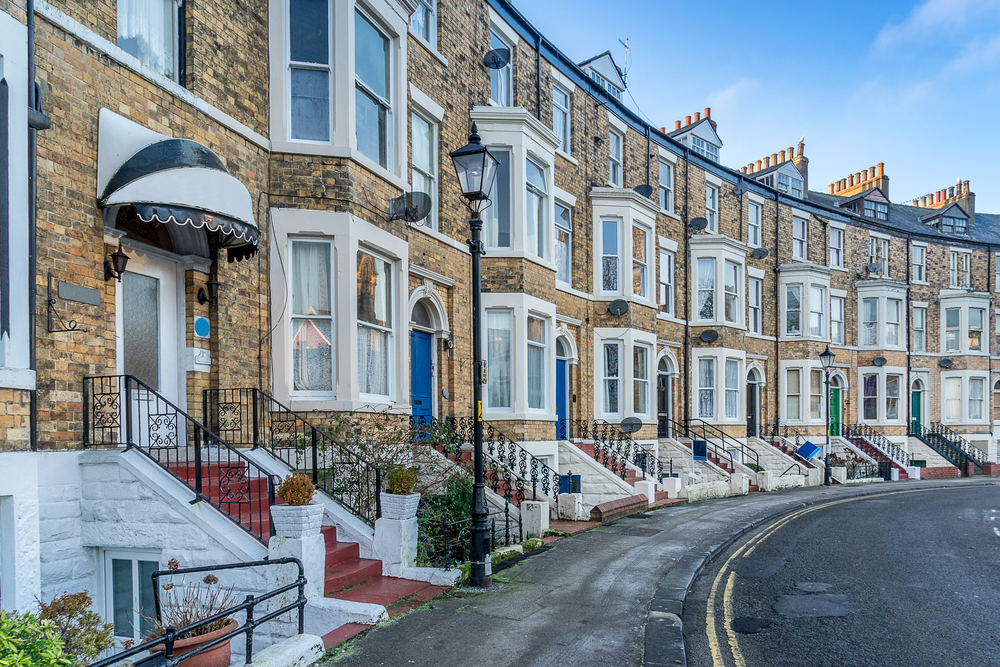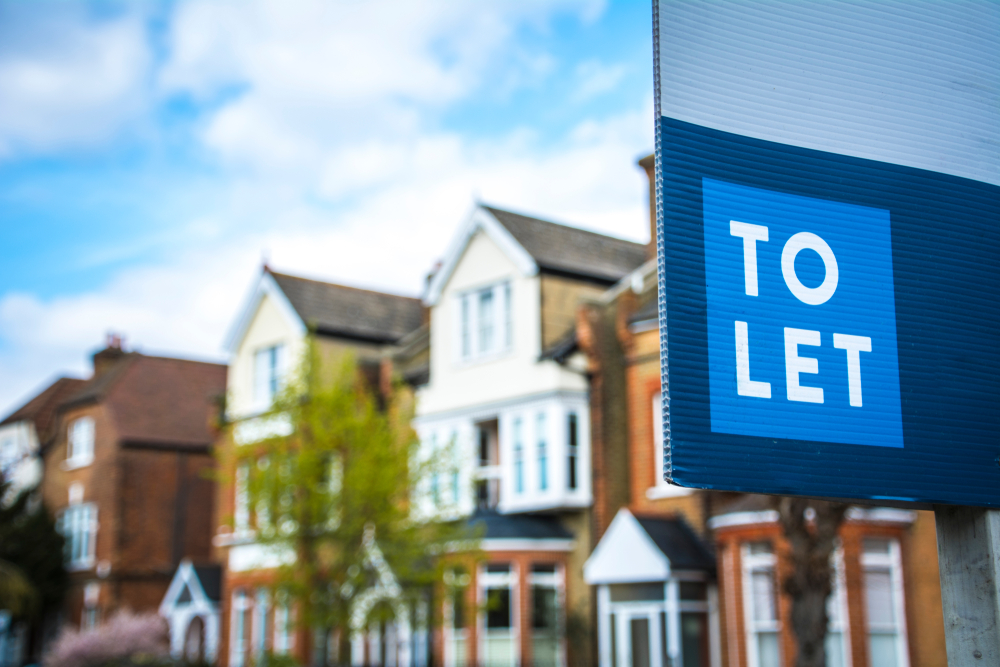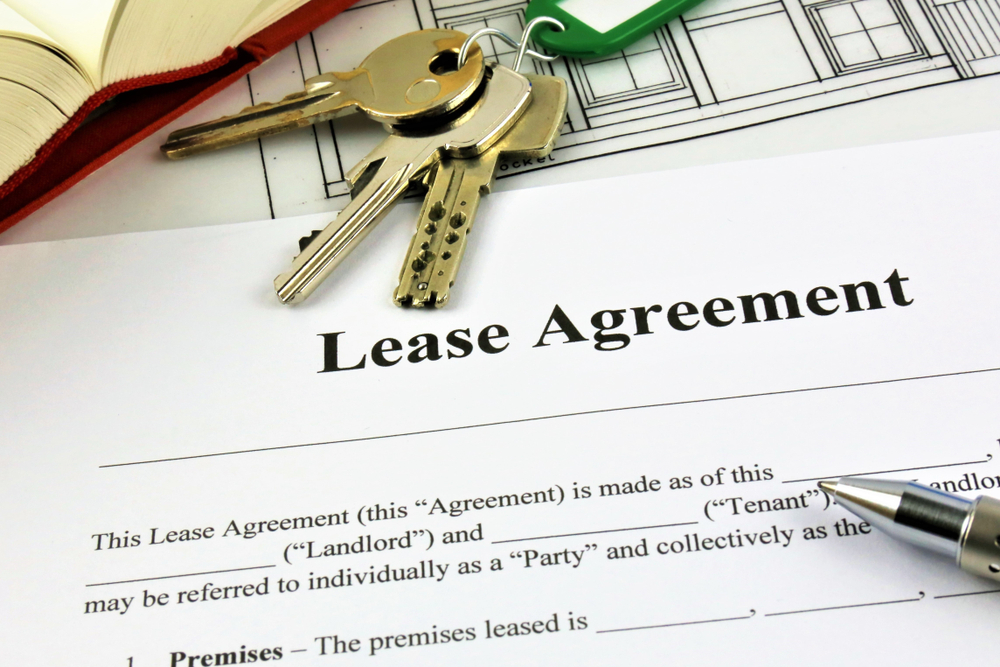Real Estate: Country Rental Fact Sheet
Welcome to the United Kingdom!
There is high demand for housing in the bustling city centers of the UK’s largest metropolises. In some of the country’s most popular cities, such as London, Edinburgh, Glasgow, Birmingham, and Manchester, it may be necessary to secure a short-term rental while searching for a more difficult to find long-term option. Apartments are the most common type of housing, found concentrated mostly in urban neighborhoods. Like any country, some regions are more expensive than others. For example, rental costs range from reasonable in a city such as Glasgow to costly in Edinburgh, Scotland’s capital city. Those looking for more space, better affordability, and quieter atmosphere will want to look for housing in the suburbs, where single-family houses are more common. In most large cities, public transportation is reliable and extensive, usually reaching to the outskirts. Expats living and working in the UK enjoy an affordable cost of living, extensive public transportation, international schools, and diverse culture. Prospective renters can choose to hire a letting agent to show them properties or try to find a suitable rental offered by a private landlord.
Types of Rental Properties
- Apartments are the most common type of accommodation available throughout the UK. Those referred to as flats have all rooms on one level, and properties called maisonettes have their own private entrances. Units typically include a kitchen and living room, often combined, along with bedrooms and a small storage area. On the other hand, a studio flat consists of only one large room to be used as the bedroom and living space, with the only other room being a bathroom.
- Single-family houses also are available, but mostly in residential neighborhoods outside the city centers. Many of these neighborhoods consist of long rows of standalone houses. Some buildings are divided and rented as apartments, while others are left complete and rented as entire houses.
Expat Cities
The UK hosts expats in a many cities both large and small. London dominates with expats, of course, but Reading, Edinburgh, Birmingham, Manchester, Cardiff, Oxford, Leeds, and Bristol also are popular. After exploring a city to identify appealing areas, most expats try to find housing that is well connected to the public transport system, which will make commuting easier. Those living in more distant suburbs may find owning a car is the easiest way to commute. Consider your place of work or study and your desired commuting method when choosing an area to find a rental.
How to Find a Rental
When searching for a rental in the UK, you can either use a letting agent or look on your own. Letting agents will show you properties that they manage. As a tenant, you should determine a neighborhood you like, browse online to see which agents represent multiple sellers in the area, and then arrange a meeting with that agent. The agent will show you the rentals in their portfolio that best match your needs. If you choose to search for listings on your own, you can browse property listings in newspapers and on classified ad websites such as Craigslist (https://geo.craigslist.org/iso/gb) and Gumtree (www.gumtree.com). In addition, some of the most popular online portals for rental properties include:
|
|
Rental Rates and Fees
Below is a table of average monthly rental rates for apartments by size and location.
| In City Center | Average Monthly Rate | Range | Outside City Center | Average Monthly Rate | Range |
| 1-bedroom | £1,694 | £1,300–2,500 | 1-bedroom | £1,265 | £1,000–1,600 |
| 3-bedroom | £3,309 | £2,300–4,500 | 3-bedroom | £2,080 | £1,700–2,800 |
- All fees associated with setting up the rental must be paid by the landlord to the letting agent. Renters should not need to pay fees even after dealing with a letting agent.
- Before renting, check to make sure that the unit’s dimensions are reported as “usable size” rather than “official size,” as the two figures can vary dramatically.
Lease Terms
Restrictions
There are no restrictions on who can rent property in England. Typically, landlords will require tenants to show proof of employment and proof of ability to work in the UK. Normally, a visa and paystub will cover these requirements.
Duration
The most common lease term in a UK lease agreement is 12 months. However, there are no legal restrictions on lease lengths, so any length agreed upon by the tenant and landlord is acceptable.
Deposits
Security deposits are required by most landlords. By law, landlords cannot request a security deposit greater than the sum of five weeks’ rent.
Landlords also can request a holding deposit to ensure rental of the property during the period of tenancy agreement negotiations. This amount cannot exceed the equivalent of one week’s rent.
Pets
Most apartments do not allow pets, and buildings with a no-pets policy are usually not willing to negotiate. There are buildings that allow pets, but it is far less common. Single-family houses are more likely to be pet friendly.
Legal Issues
- Rental law in the UK greatly favors the tenant. Tenants have the right to live in a property undisturbed, know who their landlord is, have their deposit returned when the tenancy ends, challenge excessively high charges, see the rental’s Energy Performance Certificate, and be protected from unfair eviction.
- Tenant responsibilities include upkeep of the property, paying rent, paying council tax and agreed upon utilities, repairing any damage caused to the space, and subletting the property only when given permission. Tenants also must make the apartment available to the landlord for visits when given 24 hours’ notice.
- Timely payment of rent is essential. Failure to pay rent allows the landlord to initiate eviction proceedings, and nonpayment for two months or more allows the landlord to evict the tenant almost immediately. Landlords also may evict tenants if the residence is used for illegal or immoral purposes, or if the tenant makes structural changes to the building without permission.
- After a tenant has rented for six months, the landlord can evict them at any time for any reason so long as they give two months’ notice.
- If you are renting a bedroom in an apartment with multiple roommates, you will be living in what is called a House in Multiple Occupation (HMO). Landlords must have special licenses to maintain an HMO, so be sure to verify that your landlord has this license.
Amenities
Furnished vs. Unfurnished
Rentals are generally semi-furnished with major appliances such as a hot water heater, refrigerator, and stove. Some are unfurnished, which usually means no appliances, light fixtures, or window coverings. Furnished apartments will come with all necessary appliances as well as basic furniture. If renting a furnished apartment, it is likely your landlord will provide an inventory list detailing the furniture and appliances they own and the condition they are in at the beginning of the tenancy. Review this list for accuracy to avoid being held accountable for damage that existed before your stay.
Parking
Few expats living in the UK’s large cities own vehicles. The country’s public transportation systems—buses, trains, and subways—are some of the world’s best and typically a far more efficient way to navigate sprawling metropolises. If you do require parking, your rental may have parking spaces available for an additional monthly fee. If not, contact your local council regarding an on-street parking permit.
Utilities
Most rentals do not include utility service. Electricity, gas, telephone landline, solid waste collection, and internet services are typically secured independently by the tenant. Water and sewage bills are paid to the landlord who normally secures the service.
Telephone Landline
British Telecom or BT (www.bt.co.uk) is the leading provider of telephone landline services in the UK. It also offers internet, television, and mobile phone services. Other prominent landline suppliers include KCOM (www.kcom.com) and Virgin (www.virginmedia.com).
Internet and Bundled Services
Along with British Telecom or BT (www.bt.co.uk), KCOM (www.kcom.com), and Virgin (www.virginmedia.com), other popular internet service providers in the UK are Sky (www.sky.com), Vodafone (www.vodafone.co.uk), and TalkTalk (www.talktalk.co.uk). Some of these companies also offer telephone landline, television, and mobile phone services, which can be bundled for a discounted rate.
Electricity
Depending on where your rental property is located, you may or may not have a choice when it comes to your electricity provider. Some areas are serviced by a single company, while others offer a number of suppliers. Your landlord can tell you which company is currently servicing your address and whether it can be changed.
The electricity market in the UK is unique in that there are dozens of electrical suppliers competing in the market. Electricity is connected directly to individual apartments, so the apartments in a single building could be serviced by different companies. The various electricity companies differentiate themselves by offering perks. deals, free off-peak electricity, and environmentally friendly power generation methods.
Many electricity companies also offer gas, and bundling these services tends to yield discounted rates. British Gas (www.britishgas.co.uk), SSE Power Distribution (www.sse.co.uk), EDF Energy (www.edfenergy.com), E.ON UK (www.eonenergy.com), and Npower (www.npower.com) are some of the largest companies providing both gas and electric.
Electricity use is either metered or paid for in advance. For metered usage, you will have to call your electricity company with a meter reading for an accurate bill. Every month you don’t call, they will send an estimated bill, and they will correct the difference when they receive the next meter reading.
When electricity is paid in advance, your meter will have a key that can be removed. You will have to bring that key to a refill station, typically located at convenience stores and banks, where you can top up the credit on the key. When the credit runs low, your meter will begin to blink or beep to indicate you need to add funds. After the key runs out of credit, your electricity will be cut off.
The standard electrical voltage is 230 volts AC, 50 hertz, using the three-pronged type G plug. European devices will work in the UK with simple plug adapters. American devices, which are designed for 110- and 120-volt electricity, will require voltage converters or transformers in addition to plug adapters.
Water and Sewage
Tap water in the UK is considered safe to drink. Many cities are known to have especially hard water, so many people use home water filters. Water and sewage services are supplied by local providers. When you move into a rental, you will have to call the company to put the account in your name. This typically requires proof of tenancy. A meter should be installed in your residence, in which case you will be billed monthly based on meter readings. If there is no meter installed, the provider will send an estimated bill. These can be steep overestimates that end up being quite expensive. If you have no meter, you can request that one is installed before beginning service.
It also is considered safe to drink the tap water in Scotland where the government provides water and sewage services. The cost of these services is covered by the local Council Tax. The landlord may pay the Council Tax, or they may pass this expense on to the tenant. Check your rental agreement to verify who is responsible.
Gas
Many suppliers of electricity also provide piped natural gas (PNG) for heating and cooking. It is recommended to bundle your electricity and gas for the sake of savings and simplicity. British Gas (www.britishgas.co.uk), EDF Energy (www.edfenergy.com), E.ON UK (www.eonenergy.com), and Npower (www.npower.com) are some of the most popular companies providing both gas and electric. To establish a gas connection with one of these organizations you will have to call their headquarters and provide your postal code, address, and current meter reading. They may ask you to provide information about the rental’s previous gas supplier, and you can get that information from your landlord.
Waste and Recycling
The collection of solid waste and recycling is provided by local councils. Your landlord will be able to advise you as to how collection is handled in your neighborhood. This service is paid for via the Council Tax, which may be taken care of by the landlord or they may pass this expense on to the tenant. Check your rental agreement to verify who is responsible.
Making Payments
Utilities are primarily paid for online, typically using direct debit. Utility provider will collect your bank account information in order to automatically deduct monthly payments. Rent also can be paid using direct debit.
FAQs
How long will it take to find an apartment?
There are many rentals available throughout the UK. Once you determine where you want to live and find a suitable rental, you’ll need to move swiftly to secure it. Though an apartment could be rented in as little as three weeks, it is recommended to give yourself at least a month or two to search.
Can I negotiate my lease?
The monthly rental of properties can usually be negotiated unless already specified by the landlord. The majority of the negotiations will be regarding a fully “inclusive” monthly price that already factors in any included utilities and council tax. An “exclusive” price does not include these costs, which should be factored in to determine your total monthly budget.
In addition, when renting an unfurnished apartment or partially furnished apartment, the requirement for additional furniture, appliances, or fittings, can sometimes be negotiated.
Should I have renter’s insurance?
There is no legal requirement to get renter’s insurance in the UK. However, it is advisable if you are concerned about your possessions being stolen or damaged.
Article written for World Trade Press by Taylor Holloran and Brielle Burt.
Copyright © 1993—2024 World Trade Press. All rights reserved.

 United Kingdom
United Kingdom 

